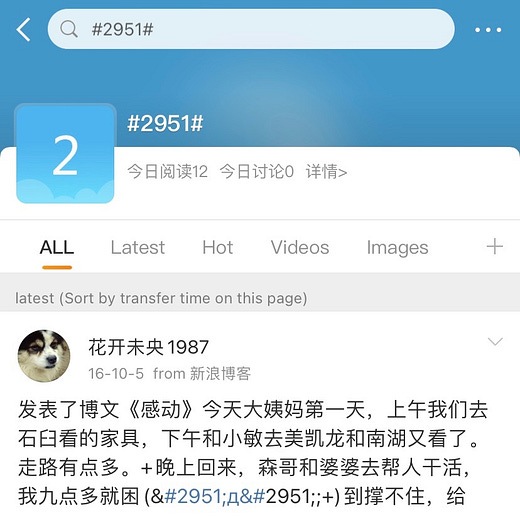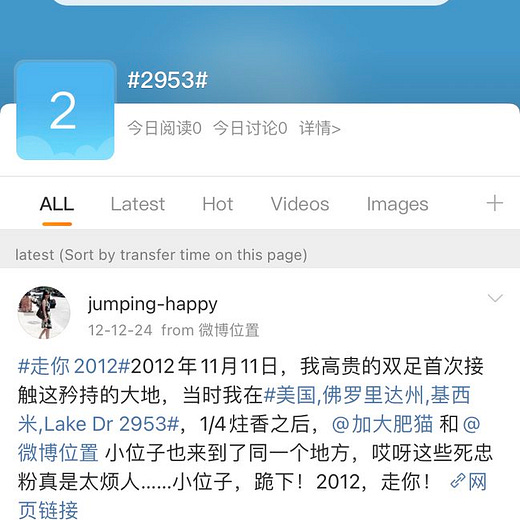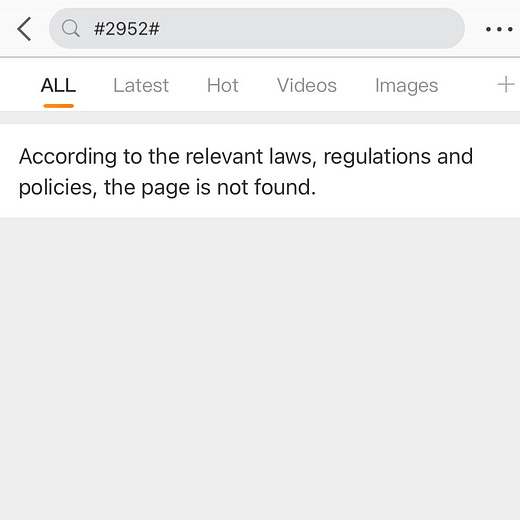All at sea ChinaDiction #86
Less a case of nobody watching than China just downright getting away with it in the South China Sea.
The USS John S McCain in the South China Sea. Photo: Navy Petty Officer 3rd Class James Vazquez via WikiCommons.
Seizing the South China Sea
The Wall Street Journal has an excellent long piece on how China took command of the South China Sea. Most of the early roll out of artificial, military island bases took place during the Obama administration, which obviously had its eyes elsewhere at the time.
The SCS, through which trillions in trade travels every year is nearly now under the complete Chinese control – and the US military is concerned that it might be harder to dislodge than was previously thought.
The disputed sea is ringed by China, Taiwan and Southeast Asian nations, but Beijing claims nearly all of it. It has turned reefs into artificial islands, then into military bases, with missiles, radar systems and air strips that are a problem for the U.S. Navy. It has built a large coast guard that among other things harasses offshore oil-and-gas operations of Southeast Asian nations, and a fishing militia that swarms the rich fishing waters, lingering for days.
In short, if you don’t track this stuff, it’s a big deal:
China’s broader challenge to America’s long pre-eminence across the Indo-Pacific region threatens U.S. allies such as Japan, and puts the vast majority of the world’s advanced semiconductors, which are produced in Taiwan, at risk. China’s buildup in the South China Sea especially threatens the Philippines, a U.S. ally.
We can’t really say this happened behind our backs, because there was no shortage of reporting and discussion of China’s rollout into the SCS, but the “brazen” scale of China’s ambitions have definitely taken some by surprise.
In the years after Mr. Xi rose to power, U.S. officials didn’t realize the degree to which he would break from the past in taking a more confrontational foreign-policy approach, said former U.S. political and military officials.
They ‘found it very hard to believe that China would do something so coercive and so brazen, and by the time they understood the ambition—just how big these things are going to get, just how militarized—it was too late to do anything about it,’ said Gregory Poling, author of a 2022 book on the history of America’s involvement in the South China Sea and director of the Asia Maritime Transparency Initiative at the Washington-based Center for Strategic and International Studies.
Altogether now: where did that virus come from?
CNBC reports that The House of Representatives on Friday unanimously voted to declassify information on possible links between the Wuhan Institute of Virology and the Covid-19 pandemic, sending the bill to President Joe Biden.
The Senate also voted unanimously earlier this month to require Director of National Intelligence Avril Haines to declassify such information.
The move comes as the mainstream media comes around to the plausibility of a possible lab leak in Wuhan as the source of a pandemic that has led to as many as 18 million deaths worldwide.
As the Financial Times puts it, the recognition of plausibility for a theory long marginalized in Crankville can probably be put down to:
… the potential conflict of interest among the scientists who dismissed the lab leak hypothesis at the outset in prestigious scientific journals such as The Lancet and Nature Medicine.
This provided the false impression that a natural spillover was the scientific consensus. This conflict arises from the fact that researchers perform, and want to continue to perform, precisely the sorts of experiment that make a laboratory leak much more likely. These include gain of function experiments where they investigate whether they can enable, by genetic modification, an animal virus to infect human cells (or ‘humanised”’mice). These experiments are performed worldwide on a variety of organisms and were being performed in Wuhan on Sars-Cov-2 like viruses.
Iran Saudi deal, China brokered
With Xi announcing his first meeting with Ukraine President Volodymyr Zelenskyy since Russia went to war with the state, China’s stepping up its peace-making game, fresh from overseeing talks in Beijing that have brought Saudi Arabia and Iran back together, reports The Guardian.
The two great oil-producing rivals of the Middle East, have agreed to restore ties and reopen embassies seven years after relations were severed.
… ‘As a result of the talks, Iran and Saudi Arabia agreed to resume diplomatic relations and reopen embassies … within two months,’ Iran’s state news agency Irna reported, citing a joint statement.
The agreement has potentially wide implications for the Iran nuclear deal and the civil war in Yemen, where the two sides are locked in a proxy war, and shows the new determination of Saudi Arabia to conduct a foreign policy independent of the west.
And they did it all without resorting to the use of English!
Central bank chief keeps job
Yi Gang, pictured in 2013. Photo: World Economic Forum from Cologny, Switzerland via WikiCommons.
All the talk of massive restructurings in Beijing aside, the central bank chief, Yi Gang, has kept his job, according to the Financial Times.
Xi Jinping has kept the country’s central bank governor Yi Gang in his post and retained his finance and commerce ministers, as the Chinese president defied expectations of a large-scale overhaul of his cabinet at this year’s annual parliamentary meeting.
The reappointments, which analysts said would reassure markets nervous about plans by Beijing to reform the financial sector, were among a swath of senior posts announced at the rubber-stamp National People’s Congress on Sunday.
The SVB factor
Silicon Valley Bank (SVB). Photo: Tony Webster; WikiCommons.
TechCrunch reports that the collapse of Silicon Valley Bank is creating “panic” in China, but others are more sanguine, with China commentators pointing out that while there are lessons for (heavily indebted) China, there’s no immediate risk.
According to China’s Security Times:
While the SVB incident reflects loosened regulation of such banks in the U.S., a slew of financial regulatory reforms in China over the past years have cleaned up the industry, curbed shadow banking and reduced financial risks.
In addition, China has been closing regulatory loopholes, the editorial said. In the latest move, China said last week it would set up a new national financial regulatory body consolidating oversight of the industry. ‘Although the SVB incident won't have material impact on China's finiancial markets, China's financial industry still needs to earnestly learn from this lesson, and always prioritise risk prevention and control,’ the newspaper said.
We’ll see how that all plays out … Logically, sooner or later one would expect collapsing banks in China.
Do we know, for example, whether everyone got their money back in the banking crisis of Henan Province last year, as well reported as it was by the likes of CNN?
An honest doctor
The man known as the SARS whistleblower – the first SARS that is – Jiang Yanyong passed away last Saturday (12 March) at the age of 91, reports the China Digital Times, which notes that most Chinese-language searches for him yield a 404.
In a quick translation from the China Digital Times:
In early 2003, as SARS was raging, ordinary people didn’t know what the disease was.
Jiang Yanyong learned the inside story from personal channels, and was very anxious, especially during the press conference on the afternoon of April 3, 2003, which made him extremely angry. The then Minister of Health announced that ‘as of March 31,’ there were ‘12 cases in Beijing and 3 deaths,’ and repeated several times that the SARS epidemic in some parts of China ‘has been effectively controlled.’
On the evening of April 4, Jiang Yanyong wrote an 800-word email based on the real data he learned from several hospitals and sent it to CCTV-4 and Phoenix Satellite TV.
He wrote in the letter: ‘When I went to the ward today, all the doctors and nurses were very angry after reading yesterday's news.’
As one Chinese commentator put it, “In a sense, it is not an exaggeration to say that Jiang Yanyong is a hero of our time. So far, he is still unknown” in a reference to the near invisibility of the doctor who alerted the world to the first SARS outbreak in his own country.
The Greater Sinosphere
Australia
Drew strikes again
Australia’s most renowned anti-CCP-baiter is at it again – and getting away with it, thankfully.
And the result:
Hong Kong
Tiananmen vigil organizers jailed
Hong Kong has arrested three former organizers of the annual Tiananmen vigil for 4-1/2 months, according to media reports.
Chow Hang-tung, Tang Ngok-kwan and Tsui Hon-kwong were arrested in 2021 and were jailed on Saturday for “failing to provide authorities with information on the group in accordance with a national security law.”
40,000 quarantine units sit idle
Yes, in the world’s most expensive property market, CNN reports”
Welcome to Hong Kong, where the average home sells for well north of a million dollars – and even a parking space can go for close to a million – but where more than 200,000 people face waits of at least half a decade for subsidized public housing.
The Hong Kong government says it’s hard-pressed to find land to erect subsidized living space for its citizens, but in the meantime some 40,000 units on 80 hectares of land are sitting unused.
Hong Kong authorities have not revealed to the public how much the network of quarantine facilities cost. But its total spending bill on the pandemic in the past three years has run to $76 billion (HK$600 billion), according to the city’s financial secretary.
Taiwan
Securing a line out
As ChinaDiction reported at the time Taiwan's communications vulnerability was highlighted when the two undersea cables connecting the Taiwan-controlled Matsu islands, were cut, leaving the 14,000 people who live there cut off from the internet.
It was reportedly an “accident” caused by Chinese vessels, but nobody knows that for certain, and it’s led to some soul searching along the lines of, What if all Taiwan is cut off from the internet by China?
A backup microwave system that transmits signals from the top of a mountain in Taipei to Matsu was able to restored around 5% of the bandwidth that the cables had provided, reports Reuters.
This month, the government upgraded the system and internet speed significantly improved. But because there are few cable repair ships in the region, residents must wait until late April for internet access to be fully restored.
Meanwhile …
The Ukraine war has lent new urgency to Taiwan's efforts to bolster its security, especially against Chinese cyber attacks or attempts to sever any of 14 cables that connect it to the global internet.
‘Strategic communications, internally and externally, is what keeps us up at night, particularly in the aftermath of Ukraine,’ said Tzeng Yisuo, an analyst at Taiwan's top military think tank, the Institute for National Defence and Security Research.
Taiwan's total satellite bandwidth is about 0.02% of what its undersea cables provide, according to Kenny Huang, chief executive at Taiwan Network Information Center, the island's internet domain manager.
Obviously, Taiwan does not trust Elon Musk to come to the rescue with Starlink terminals, which means it’s going to have to scramble and come up with its own solutions.
In this, as is the case with water, energy and even eggs, Taiwan is looking vulnerable to a blockade – war aside – before the outbreak of hostilities.
All Taiwan’s household data for $5,000
It’s difficult to say which is more absurd: somebody getting hold of the personal data of everybody in Taiwan – more than 23 million people – or the fact they put it up for sale for $5,000.
Commonwealth Magazine has the story in English.
‘This was a major national security incident,’ said Kenny Huang (黃勝雄), the managing director and CEO of the government-funded Taiwan Network Information Center (TWNIC). He said he had not heard of any country facing as massive a leak of citizen information as Taiwan.
Disinfo on the horizon
If keeping a line open out of Taiwan is a problem (see above) the Taiwan News reports on another related problem; keeping a lid on the lines into and out of China.
Big trouble is expected around the time of the presidential elections early next year.
Taiwan already faces a large volume of propaganda and disinformation. The Chinese Communist Party’s (CCP) United Front Work Department (UFWD) has been actively targeting Taiwan for some time, and Taiwan is widely seen as ground zero and the testing ground for UFWD activities.
Financial Times reported during the 2020 national election cycle that reporters for both the Taiwanese news outlets Want Want China Times newspaper and CTiTV news received instructions directly from China’s Taiwan Affairs Office (TAO). These revelations led to abusive libel lawsuits against prominent journalist Kathrin Hille, though in the end they were fortunately dropped. CTiTV was eventually taken off cable TV, giving over half their entire news coverage to the then China-favored KMT presidential candidate Daniel Han Kuo-yu (韓國瑜), but China Times is still operating normally and CTiTV is now on Youtube.
Basically, we’re looking at the convergence of technologies that will make the containment of disinformation – arguably already a failed mission – next to impossible, and it’s likely in Taiwan that the Democratic Progressive Party (DPP) will be the target of destabilizing information from China.
The tools will likely overwhelm any fact checkers, moderators, and other defenses. The sheer volume will also make it more likely that they will dominate search engine results for all sorts of keywords and phrases, crowd out legitimate journalism and academic papers, and clog results with propaganda to their liking.
Tibet
Protesting Tibetans held in New Delhi
Tibetan flags. Photo: Colin Smith; WikiCommons.
The Tibet Review reports that a number of Tibetans have been “booked” for protesting outside the Chinese embassy in New Delhi on the 64th anniversary of the Tibetan National Uprising on Mar 10.
It’s considered an unusual move.
Police in New Delhi have on numerous previous occasions released such protesting Tibetans, including during visits of top Chinese leaders, later on the same day. It is not clear why they have decided to put them on trial this time, especially after a police officer previously seemed to have indicated that no charges will be filed against them.
PTI news agency Mar 11 quoted a police officer as saying, “As they tried to jump over the barricades to reach the embassy, we detained them. Once the situation is under control, they will be released.”
It is not clear whether they indeed were released.
TYC is a grassroot organization based in Dharamshala, India, with local chapters in Tibetan communities across India and in cities in scores of other countries. The group campaigns for the restoration of Tibet’s independence from Chinese rule.
Coda
Numbers game
If you find this weird, ChinaDiction won’t hold it against you, but the idea is probably to prevent puerile jokes emerging on social media, like, I was voted into my new job with 2,592 for and with zero abstentions.














